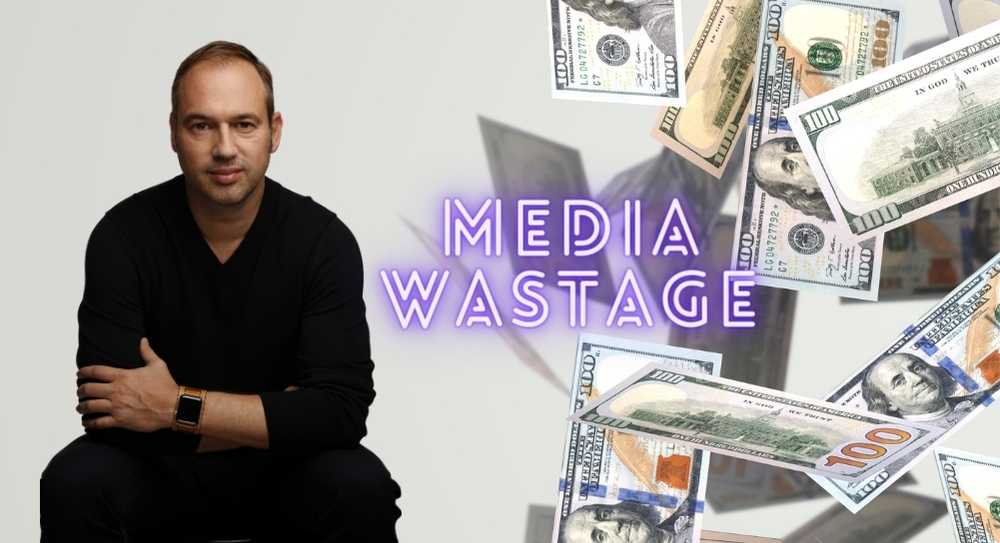For challenger brands around the world, maximizing the impact of advertising budgets is crucial. In your bid to gain ground on your larger competitors, every penny or cent matters. You simply cannot afford for spend to be wasted or swallowed up by a media agency not operating in your best interests.
That’s why media auditing is so essential to a productive and profitable relationship between your brand and your media agency. A good media agency contract will ensure you are spending only what is necessary.
But how can you ensure you are getting the most from your media agency contract? In this post, we’ll outline 20 critical questions for any challenger brand to ask of its media agency as it negotiates its advertising contract.
Why is the media agency contract so important?
You may not think it is possible for small and medium advertisers to get the same benefits as the world’s biggest advertisers. But it is – if you can secure a contract that prises open your agency’s modus operandi and puts media agency transparency and accountability at its core.
Broadly, your contract should have three strategic aims:
- Increased transparency, which gives you a full understanding of how much you are paying and what rebates your agency is receiving. Transparency can also include understanding how many agency staff will be servicing your account, the job role of each one, the FTEs your agency is committing to your account, the average salaries of those involved and the overheads mark-up, and whether there is a profit mark-up included in the base fee.
- Improved accountability, which can help to build trust at the beginning of a relationship and provide a mechanism for holding to account an underperforming agency.
- Embedded industry best practices, including full transparency, competitive prices, effective media planning, data and audit rights, and established and new media agency trading practices focused on proprietary/inventory media and programmatic media buying.
When negotiating your contract with your media agency, we recommend you ask the following questions:
20 essential questions for assessing a media agency contract
1) Is your contract signed by both parties?
Until the contract is signed by both parties, it is not formally agreed. If you choose to begin work before the signatures are in place, the likelihood of the contract ever being signed significantly reduces. You may also have to rely on verbal agreements (which can be difficult to prove), emails, or other documents if a dispute about the work ever arises.
2) Are the agreed services and deliverables clearly described?
Contracts are designed to provide accountability and transparency. But without clearly defined deliverables, this is an impossible task. By including a detailed scope of work, you remove any ambiguity around the services and deliverables expected within your agency’s remuneration.
3) Is your agency acting as an agent?
It is becoming increasingly common for agencies to act as principals – rather than agents – in the purchase of media. This can allow agencies to secure, and hide from their clients, substantial advertising discounts they receive from the media owner. A good contract ensures your agency acts as an agent. If your contract enables your agency to act as a principal, you are buying media directly from your agency. So the disclosure of the original prices, discounts, and AVBs is no longer mandatory. Clearly, this is not a recommended approach for any prudent advertiser.
4) Do you have strong authority clauses?
A key part of a best-in-class media contract is the stipulation that terms cannot be changed in future without the proper authorisation of the signatories to your original contract. This clarity avoids the situation where someone else claims to have the ability to vary key terms.
5) Is the exclusive/non-exclusive basis reciprocal?
Whether you choose to work with your agency on an exclusive or non-exclusive basis, the important thing is to ensure the agreement is reciprocal. This puts fairness at the heart of your contract. Do not sign an exclusive agreement with your agency, if it is not agreeing to service your contract exclusively to the exclusion of your key competitors.
6) Does your agency remuneration model include a PRF?
A PRF (Performance Related Fee) adds a layer of remuneration based on performance, rather than solely relying on a base fee. This helps to protect your investment, incentivise your agency to maximise your budget’s impact, and penalise your agency should it underperform. Having both bonus and malus mechanisms means you get what you pay for, and your agency earns your trust and respect. It also protects against low-quality service or under-delivery against pitch promises/guarantees. And when your agency performs above expectations, they are rightly rewarded with a financial bonus.
7) Is the agency remuneration calculated in a transparent manner?
A best practice media agency contract should include a ‘key personnel and FTE overview’ section, detailing the names, average salary costs, overheads, and profit margin the agency will earn as part of its overall remuneration package. Whatever the agreed remuneration is, you should know how it has been calculated, so it can be benchmarked.
8) Does the PRF scheme include both a bonus and malus mechanism?
PRFs are particularly effective at driving high levels of performance from media agencies, incentivising them to deliver the best media inventory and prices it possibly can. Terms detailing financial penalties for underperformance are also crucial to ensure its effectiveness.
9) Does your contract include any agency commitments?
Strong media agency contracts explicitly detail KPIs the agency has promised to deliver during the media agency pitch process. Typically, these KPIs may include media prices, media quality levels, AVBs, digital media technical costs, and data reporting requirements. A good contract also details the methodology used to determine if these KPIs have been met.
10) Does your contract include robust audit rights?
You should have the right to appoint any auditor of your choosing. Don't let your media agency restrict your auditing rights, for both performance and financial auditing. If they do, they might have something to hide.
11) Does your contract cover the treatment of cash rebates/AVBs?
The value of AVBs can range between 3% and 20% of your net media spend. Without clear transparency on AVBs, your budget could be allocated to less effective media placements. You could even be unaware of the presence of any AVB between your agency and the media owner.
12) Does your contract include ‘Defined Terms and Conditions’?
These are essential to making the interpretation of your contract as simple and straightforward as possible, helping to reduce the risk of ambiguity and giving both parties clarity of their commitments and obligations.
13) Does your contract cover the treatment of unbilled media?
Taking a firm approach to negotiations can ensure you receive the benefit of any and all unbilled media on your account. The amounts involved can be significant and are expected to grow as more spend moves into digital.
14) Does your contract cover the treatment of early payment discounts (EPDs)?
As the advertiser, you are entitled to receive any EPDs received by your agency. Your contract should ensure your agency discloses the existence of all EPD opportunities, which can be as high as 3% of net media prices.
15) Does your contact cover ‘Detailed and Transparent Reporting’?
Make sure you have all your reporting requirements included in the scope of work, including financial summaries, media buying summaries, campaign performance reports, and tracking reports. Post-campaign reports are a crucial springboard into your next wave of advertising. These reports should highlight key failings and successes, allowing you to refine your direction. Ensure all post-campaign reporting requirements are detailed in full, so your agency knows exactly what it must deliver.
16) Does your contract cover key individuals working on your account?
Talented individuals are scarce. If you have identified key people in your agency’s team, your contract should stipulate them and secure a detailed resource plan from your agency.
17) Does the contract have standard subcontracting clauses?
Make sure your agency can only subcontract any aspect of the work only with your prior written approval.
18) Does your contract include the methodology for calculating the agency bonus/malus?
A methodology document is essential, because without it you have no discernible way of measuring whether an agency’s performance has reached its bonus/malus triggers.
19) Do you have standard termination clauses?
A best practice media agency contract normally contains a 3-6 month termination clause without cause.
20) Are your agreed payment terms competitive?
Take 30 days as your starting point. Anything less is tipping the advantage in your agency’s favour. The longer the payment terms, the better for your business.
Media auditing is essential for growing your business
Ambitious challenger brands are focused on growth. Media auditing, and securing a media agency contract built on industry best practices, is a critical way to ensure your business enjoys the same benefits as big advertisers – and gives you the platform from which you can turbocharge your growth with productive and cost-effective media placements.
Since 2018, Abintus has been empowering companies like yours to maximise their advertising media performance through their proprietary media transformation program.
Contact us today for an initial consultation and take your media agency contract to the next level.
.jpg)


